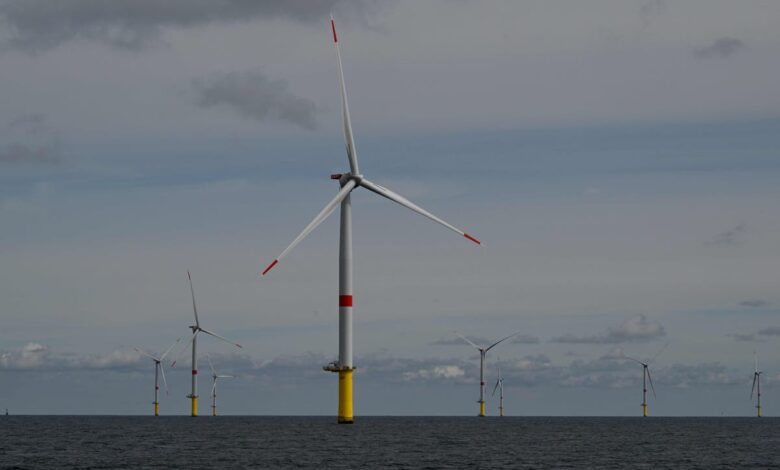‘Windfall tax’ for low-carbon energy firms in U-turn from Liz Truss

Business secretary Jacob Rees-Mogg has launched plans for a cap on revenues of low-carbon electricity generators, in what effectively amounts to a temporary windfall tax on the sector’s profits.
Labour said that prime minister Liz Truss had been “dragged kicking and screaming” into the U-turn, after months of resisting its calls for further levies on the extraordinary profits being made by the energy companies.
Reports suggest that the cap could limit prices to as little as £50-£70 per megawatt hour – compared to current prices of around £500 – with the government taking as much as 90 per cent of wholesale revenues above this level.
Mr Rees-Mogg’s business department declined to confirm figures, which are subject to consultation. But they said the scheme had “the potential to save billions of pounds for British bill-payers, while allowing generators to cover their costs, plus receive an appropriate revenue”.
But industry body Renewable UK said that, as designed, the scheme would mainly impact on older wind and solar energy projects, but voiced concern that it could skew future investment towards fossil fuel energy sources.
RenewableUK’s CEO Dan McGrail said: “We are concerned that a price cap will send the wrong signal to investors in renewable energy in the UK. A price cap acting as a 100 per cent windfall tax on renewables’ revenue above a certain level, while excess oil and gas profits are taxed at 25 per cent, risks skewing investment towards the fossil fuels that have caused this energy crisis.
“This decade we need to attract £175bn of investment in secure, domestic wind power and we can already see the investor turmoil that the EU’s proposed price cap is causing in the European market.
“To limit the negative impacts, it is essential that a cap is set at a level that doesn’t make the UK less attractive to investors than the EU, is technology neutral and has a clear sunset clause in place.”
Ministers have been looking for means to rein in unprecedented profits being made from nuclear, wind and solar power, which result from the fact that their prices are tied to gas, which has rocketed in cost as a result of Russia’s invasion of Ukraine.
Ms Truss had previously resisted Labour’s call for an extension of the windfall tax imposed by former chancellor Rishi Sunak on North Sea oil and gas producers, insisting that any such levy would deter future investment.
Shadow climate change secretary Ed Miliband said: “The government has finally accepted the principle of Labour’s call for a windfall tax on excess profits of electricity generators. After months of telling the country they were utterly opposed to the principle of a windfall tax, they have been dragged kicking and screaming to implement it.
“Yet again this shows Labour leading the agenda in British politics with another screeching U-turn from a government in office but not in power. But the government’s delay in acting will have cost billions and the public will pay the price.
Friends of the Earth’s head of policy Mike Childs said: “While it’s wrong for any energy supplier to be making excess profits at the expense of consumers, Liz Truss’s government appears to be coming down harder on green energy companies than the fossil fuel giants.
“Any windfall tax or similar measure on renewable energy companies has to be designed to motivate additional renewable energy investment – not discourage it.
Shares in energy companies have taken a hit since the Financial Times reported last weekend that a revenue cap was under consideration.
Business department insiders insisted that the “cost-plus revenue limit” is not a windfall tax, as it applies only to excess revenues resulting from unusual trading conditions, and not to all profits.
It is understood that it will apply to low-carbon generating assets not currently covered by a contract for difference and will be applied in England and Wales from the start of 2023. It will remain in place until markets return to normal.
The announcement was made as the government introduced its Energy Prices Bill to put into law the support offered to households and businesses last month by Ms Truss.
The package caps average annual household bills for gas and electricity at around £2,500 for two years, at a cost estimated at £60bn over its first six months.





